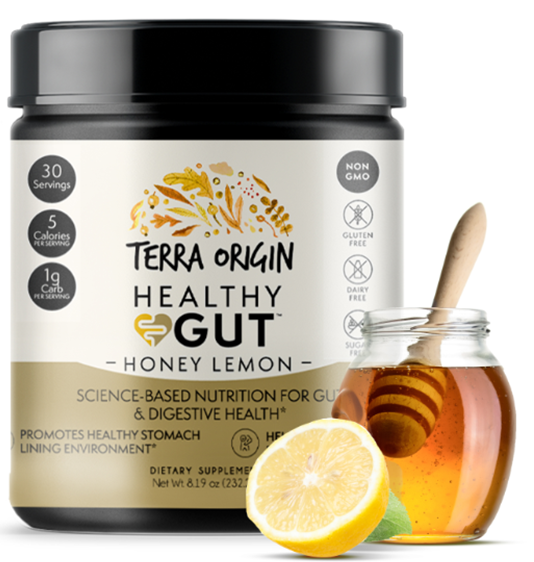Boost Your Gut Health with the Right Gut Health Supplement for You
Boost Your Gut Health with the Right Gut Health Supplement for You
Blog Article
Discover the Secret to Food Digestion and Resistance With Digestive Tract Health Assistance

Recognizing Digestive Tract Wellness
Comprehending digestive tract wellness is vital for total wellness, as it plays a considerable function in digestion, immunity, and even psychological health. The intestine, consisting of the intestinal tract, is in charge of breaking down food, taking in nutrients, and getting rid of waste. A well balanced digestive tract environment makes certain effective food digestion, allowing the body to make use of nutrients successfully.
Moreover, gut wellness dramatically impacts the immune system. The intestine houses a considerable section of the body's immune cells, and a healthy and balanced digestive tract can aid fend off pathogens and lower inflammation. Disruptions in gut wellness can bring about an overactive immune response, potentially adding to autoimmune problems and allergic reactions.
Furthermore, the digestive tract is commonly referred to as the "2nd brain" due to the gut-brain axis, a complicated communication network connecting the gut and the mind. This connection affects state of mind, cognition, and psychological health. Issues such as dysbiosis, defined by a discrepancy in gut germs, have been connected with psychological wellness problems, including anxiety and anxiety.
The Intestine Microbiome Explained

The digestive tract microbiome, a varied community of microorganisms residing in the stomach tract, plays a crucial duty in preserving digestive health and general wellness. Making up trillions of bacteria, viruses, fungis, and various other germs, this facility environment aids in the digestion of food, the synthesis of important nutrients, and the law of metabolic procedures.
Each person's intestine microbiome is unique, influenced by aspects such as diet regimen, lifestyle, genetics, and ecological exposures. A balanced microbiome supports ideal digestion by damaging down complex carbohydrates, creating short-chain fats, and helping with the absorption of nutrients. Conversely, a discrepancy, frequently referred to as dysbiosis, can bring about gastrointestinal disorders, including irritable digestive tract disorder (IBS) and inflammatory bowel condition (IBD)
Research study has actually shown that a diverse microbiome is connected with far better wellness outcomes, emphasizing the value of dietary selections in nurturing these microorganisms. Foods abundant in fiber, probiotics, and prebiotics, such as fruits, vegetables, and fermented products, can promote a healthy microbiome. Understanding the intestine microbiome is crucial for establishing targeted interventions focused on enhancing digestive wellness and protecting against gastrointestinal illness.

Link In Between Food Digestion and Resistance
A robust link exists in between digestion and immunity, highlighting the vital role of the gut in maintaining overall wellness. The gastrointestinal system is home to trillions of microbes that create the gut microbiome, which significantly influences both immune responses and gastrointestinal processes. This complicated community aids in breaking down food, soaking up nutrients, and providing necessary metabolites that support immune function.
When food digestion is effective, the gut barrier remains undamaged, preventing harmful microorganisms from entering Click This Link the bloodstream (gut health supplement). Alternatively, poor food digestion can cause a discrepancy in the microbiome, causing dysbiosis, which has been linked to different health concerns, consisting of autoimmune illness and inflammatory conditions. Around 70% of the immune system stays in the gut-associated lymphoid cells (GALT), which engages very closely with the digestive tract microbiome. This interplay makes certain that the immune system can effectively distinguish between helpful and hazardous compounds.
Tips for Sustaining Intestine Health
Supporting gut health and wellness is essential for preserving both digestive efficiency and a well-functioning body immune system. To cultivate ideal intestine health, think about incorporating a number of functional approaches right into your website link everyday routine.
First, prioritize hydration. Drinking ample water supports food digestion and aids preserve the mucosal lining of the intestines. In addition, routine physical activity can improve gut mobility and advertise a diverse microbiome.
Mindful eating techniques are also important. Chewing food completely and eating slowly can assist digestion and prevent overindulging, which might stress the digestive tract. Furthermore, taking care of anxiety with strategies such as meditation, yoga, or deep-breathing workouts can favorably influence digestive tract health and wellness, as stress is understood to interrupt gastrointestinal processes.
Including prebiotics and probiotics right into your regimen is an additional efficient method. While specific foods will certainly be discussed later, recognizing the importance of these components is critical. Prebiotics act as food for advantageous intestine microorganisms, while probiotics present online valuable organisms.
Lastly, prevent extreme use anti-biotics, as they can interfere with the equilibrium of gut plants. By following these ideas, you can considerably add to the upkeep of a healthy and balanced gut, which is essential for overall health and wellness and vigor.
Foods That Promote Gut Wellness

Fermented foods, such as yogurt, kefir, sauerkraut, and kimchi, are rich in probiotics, which are useful germs that support intestine flora and improve food digestion. These foods can see this aid recover balance in the gut, specifically after antibiotic usage or digestive disruptions.
In enhancement to fermented choices, prebiotic foods, such as garlic, onions, asparagus, and bananas, act as sustenance for these probiotics, promoting their development and task. These soluble fibers support intestine mobility and can ease concerns like irregular bowel movements.
In addition, including high-fiber foods, consisting of entire grains, vegetables, fruits, and legumes, is crucial for keeping a healthy gut. Fiber aids in normal bowel activities and assists prevent digestive system conditions.
Last but not least, omega-3 fatty acids found in fatty fish, flaxseeds, and walnuts have anti-inflammatory buildings that can even more support intestine wellness. Emphasizing these foods in your diet plan can bring about a durable gastrointestinal system and improved immune feature.
Verdict
In verdict, prioritizing gut health is necessary for optimizing digestion and boosting resistance. A balanced gut microbiome, influenced by nutritional selections and lifestyle elements, plays an important function in nutrient absorption and inflammation reduction. Integrating fermented foods, prebiotics, and high-fiber alternatives, alongside appropriate hydration and stress and anxiety management, can considerably promote intestine health. By adopting these techniques, individuals can sustain total wellness and vitality, unlocking the prospective benefits of a well-functioning stomach system.
Recognizing intestine wellness is critical for total health, as it plays a substantial duty in food digestion, resistance, and also psychological health and wellness. The digestive tract houses a considerable part of the body's immune cells, and a healthy gut can aid fend off pathogens and lower swelling.Furthermore, the digestive tract is typically referred to as the "second brain" due to the gut-brain axis, an intricate interaction network connecting the mind and the digestive tract.A robust link exists between digestion and resistance, highlighting the critical function of the digestive tract in maintaining overall wellness.In final thought, prioritizing intestine health and wellness is vital for optimizing food digestion and improving immunity.
Report this page